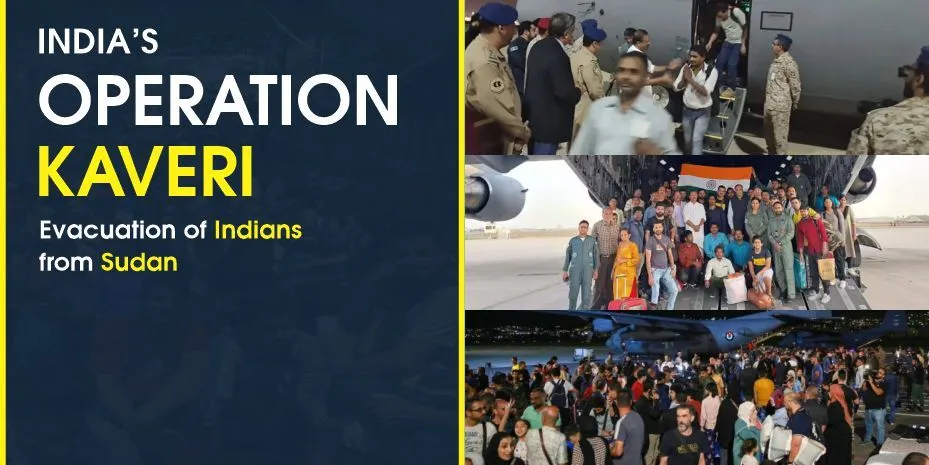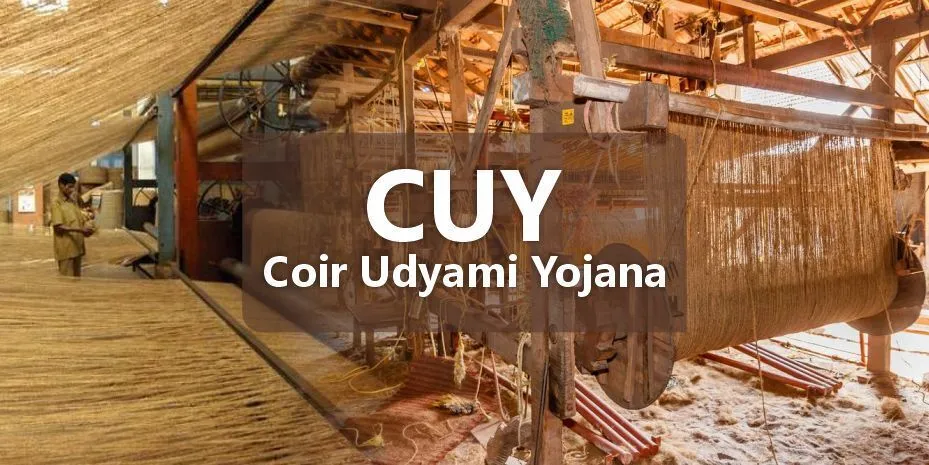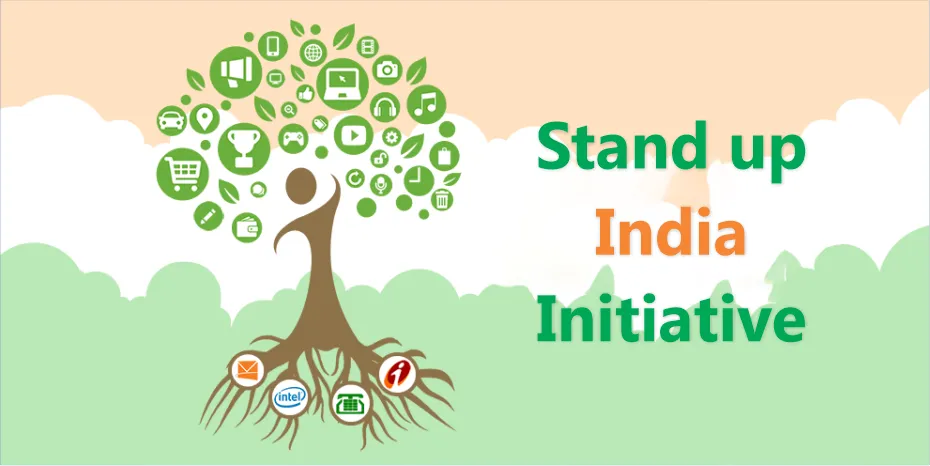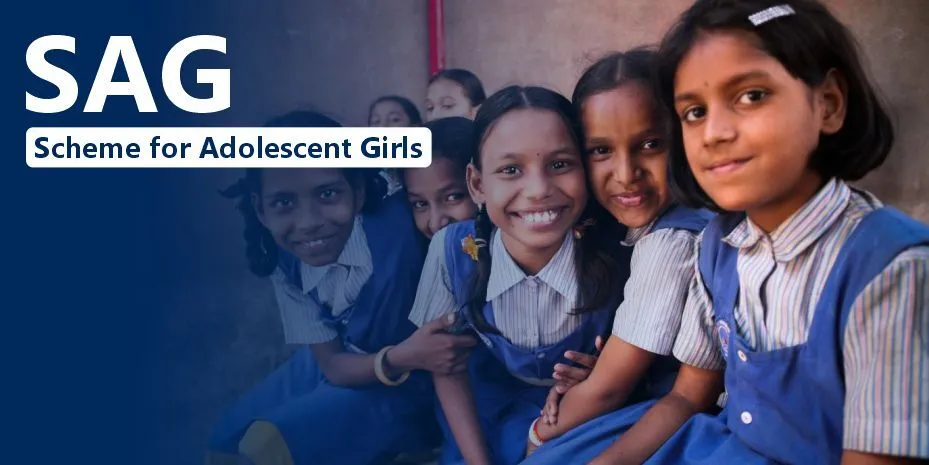Operation Kaveri is the name given to India’s evacuation mission to bring back its citizens stranded in violence-hit Sudan. The operation was launched on 26 April 2023, by External Affairs Minister S Jaishankar, following the outbreak of a deadly conflict between the Sudanese army and a paramilitary group called the Rapid Support Forces (RSF).
The fighting, which started on April 15, 2023, has reportedly left more than 500 people dead and thousands displaced. Many Indians, who were working or studying in Sudan, were caught in the crossfire and faced difficulties in reaching safe locations.
Under Operation Kaveri, India has been rescuing its citizens in buses from conflict zones in Khartoum and other troubled areas to Port Sudan, a port city on the Red Sea coast. From there, they are taken to Jeddah, a Saudi Arabian city, in Indian Air Force’s transport aircraft and Indian Navy’s ships. From Jeddah, the Indians are being brought home in either commercial flights or IAF aircraft.
Contents
How many Indians have been evacuated so far?
As of April 28, 2023, India has brought home 1,360 people under Operation Kaveri. The first batch of 360 evacuees arrived in New Delhi in a commercial plane on April 27. The second batch of 246 evacuees landed in Mumbai in a C-17 Globemaster on April 28. The third batch of 754 people reached New Delhi and Bengaluru in two C-17 flights on April 29.
According to Foreign Secretary Vinay Kwatra, India has moved out of the conflict zones around 1,700-2,000 Indians so far. He said that India’s objective and target is to take the stranded Indians out of harm’s way as early as possible and bring them back safely.
What are the challenges and risks involved in the operation?
Operation Kaveri is a complex and daring rescue mission that involves coordination among multiple agencies and countries. Some of the challenges and risks involved are:
- The security situation in Sudan is volatile and unpredictable. There are reports of sporadic clashes, looting, and arson in various parts of the country.
- The Indian embassy in Khartoum has been advising the Indians to avoid unnecessary travel and stay indoors as much as possible.
- The transportation and communication infrastructure in Sudan is severely damaged or disrupted due to the fighting. Many roads are blocked or unsafe for travel.
- The internet and phone services are also erratic or unavailable. This makes it difficult for the Indians to contact the embassy or their families.
- The distance and logistics involved in the operation are also challenging. Port Sudan is about 1,000 km away from Khartoum by road. Jeddah is another 800 km away from Port Sudan by sea or air.
- The evacuees have to endure long journeys across different terrains and climates with limited facilities and resources.
- The operation also requires diplomatic coordination and cooperation with Sudan, Saudi Arabia, and other countries involved.
India has set up separate control rooms in Jeddah and Port Sudan and the Indian embassy in Khartoum has been coordinating with them and the MEA’s headquarters in Delhi. India has also thanked Saudi Arabia for its assistance and support in the operation.
What is the latest update on Operation Kaveri?
Operation Kaveri is still ongoing as India continues to evacuate its citizens from Sudan. According to MEA spokesperson Arindam Bagchi, the tenth batch of 135 Indians departed from Port Sudan on an IAF C-130J flight on April 28. He also said that INS Tarkash, an Indian Navy ship, left Port Sudan with 326 passengers on board.
Minister of State for External Affairs V Muraleedharan, who is overseeing the operation from Jeddah, welcomed the evacuees and assured them of their safety. He also praised the efforts of the Indian officials and personnel involved in the operation.
India has also expressed its concern over the situation in Sudan and called for a peaceful resolution of the crisis. India has also urged all parties to respect the constitutional order and democratic transition in Sudan.
How are the evacuees coping with the crisis?
The evacuees who have returned home from Sudan have expressed their gratitude and relief for being rescued from the dangerous situation. They have also shared their harrowing experiences of living in fear and uncertainty amid the violence and chaos.
Some of the evacuees recalled hearing gunshots, bombs, and sirens every day and night. They said they had to stay indoors without electricity, water, or food for days. They also faced difficulties in contacting their families or the embassy due to the disruption of communication services.
Some of the evacuees also suffered injuries or illnesses during their stay in Sudan. They said they received medical attention and care from the Indian officials and personnel who accompanied them on their journey. They also praised the courage and professionalism of the Indian armed forces who carried out the operation.
The evacuees also thanked Prime Minister Narendra Modi, External Affairs Minister S Jaishankar, and Minister of State for External Affairs V Muraleedharan for their prompt and effective response to the crisis. They hailed the Indian jawans as “real heroes” who saved their lives.
What is the international response to the Sudan crisis?
The Sudan crisis has drawn international condemnation and concern from various countries and organizations. The United Nations, the African Union, the European Union, the Arab League, and several other regional and global bodies have urged all parties to cease hostilities and respect human rights.
The UN Security Council has also called for an immediate restoration of the civilian-led transitional government and a return to dialogue. The council has warned that it will consider imposing sanctions on those responsible for undermining peace and stability in Sudan.
The UN human rights commissioner Michelle Bachelet has intervened in the crisis and urged both sides to stop targeting civilians and civilian infrastructure. She said that her office has received credible reports of serious violations of international humanitarian law and human rights law by both parties.
The UN has also launched a humanitarian appeal for $1.4 billion to assist 8.9 million people in need of aid in Sudan. The country is facing a humanitarian crisis due to COVID-19, flooding, food prices, conflict, and disease outbreaks.
Several countries, including Turkey, Egypt, Qatar, Ethiopia, Kenya, Uganda, and South Africa have also offered their assistance and mediation efforts to resolve the crisis peacefully. Turkey’s defense ministry said that one of its evacuation planes was shot at while landing at the Wadi Seidna airstrip by “rebels”. No casualties were reported.
Conclusion (Final Thoughts)
Operation Kaveri is a remarkable example of India’s commitment and capability to protect and assist its citizens abroad in times of crisis. The operation has demonstrated India’s diplomatic, military, and humanitarian prowess in a challenging and complex situation. The operation has also earned India the appreciation and admiration of the international community and the Sudanese people.
However, Operation Kaveri is not over yet. India is still working to evacuate the remaining Indians from Sudan and bring them back safely. India is also closely monitoring the situation in Sudan and supporting the efforts to restore peace and democracy in the country. India hopes that the Sudanese people will overcome this difficult phase and achieve their aspirations for a prosperous and stable future.




